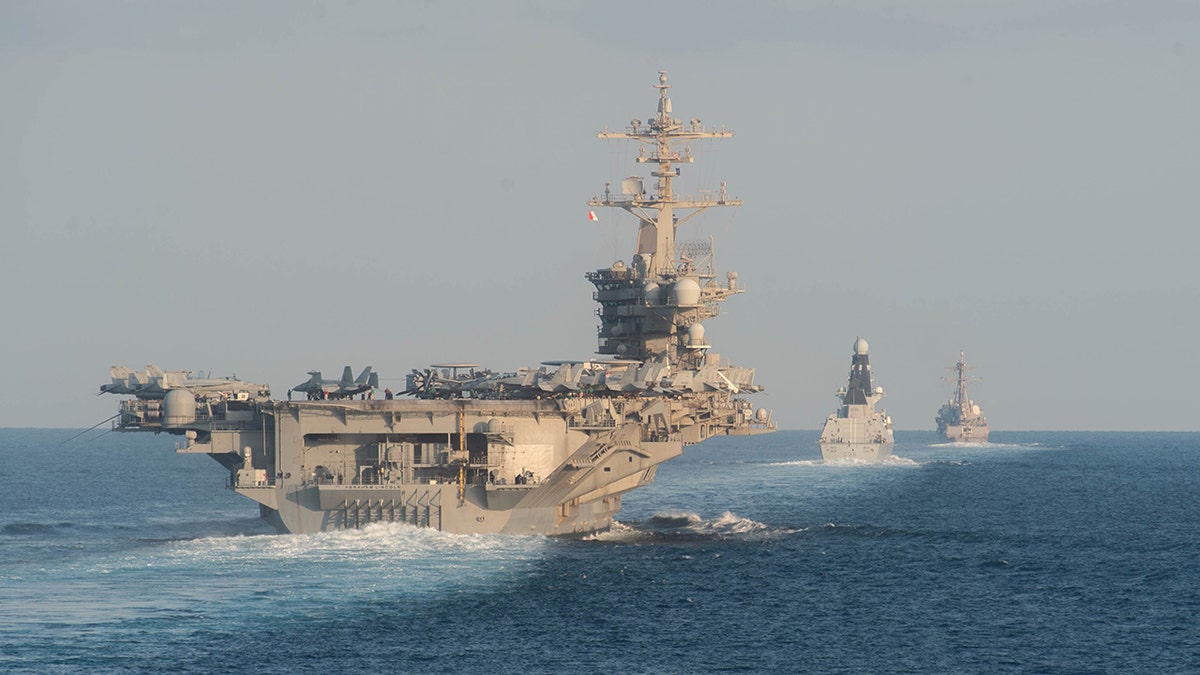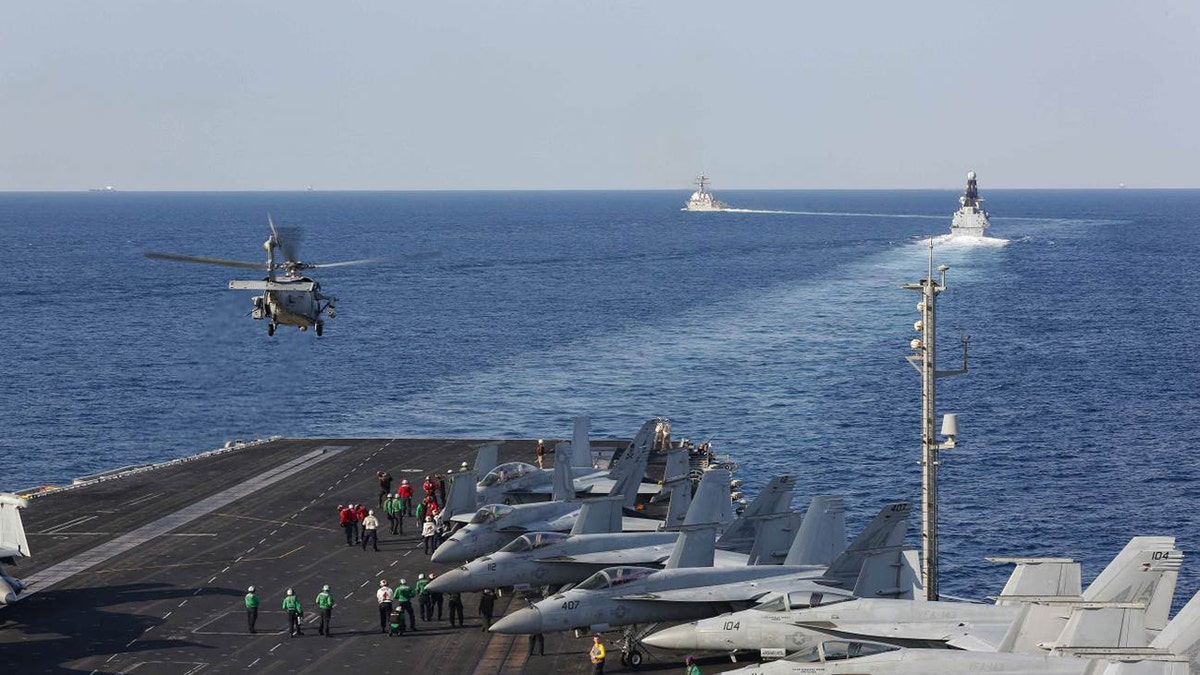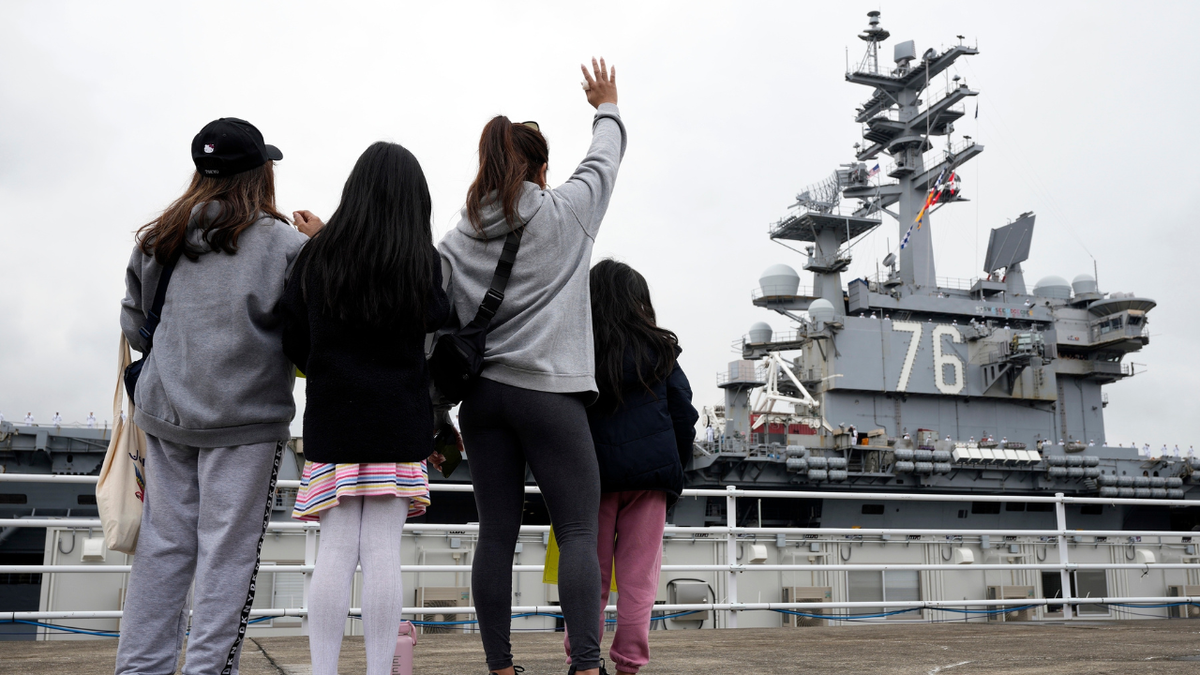Pentagon claims it can ‘walk and chew gum at the same time'
When asked about the risk of not having a carrier in the Indo-Pacific, a Pentagon official says, ‘We can walk and chew gum at the same time.’
The Pentagon claimed it can "walk and chew gum at the same time" when asked how long the U.S. will go without an aircraft carrier group in the Indo-Pacific region.
Pentagon Press Secretary Maj. Gen. Pat Ryder was asked by Fox News’ Jennifer Griffin Tuesday how long he expected there would not be an aircraft carrier strike group in the Indo-Pacific. She also asked if not having a carrier in the region was risky.
"Well, look, you know, as we look at global force management and as we look at requirements around the world in support of our national security interests, we're always taking great care to make sure that we can cover those commitments to include, in our priority theater, which is the Indo-Pacific region," Ryder said. "And, so, we have a significant amount of capability there to include a large naval presence."
Two carrier strike groups — the USS Theodore Roosevelt and USS Abraham Lincoln — are in the Middle East as part of America’s commitment "to support Israel’s defense against threats from Iran and its regional partners and proxies," according to the Pentagon.

Handout photo provided by the U.S. Navy of the USS Abraham Lincoln (Zachary Pearson/U.S. Navy via Getty Images)
Both carriers are in the Gulf of Oman.
Ryder told reporters the two carrier groups would remain in the region to provide additional capability and capacity to protect U.S. forces, support Israel’s defense and be ready for a variety of contingencies.
In May, the USS Ronald Reagan departed from its Japanese home port, wrapping up nearly nine years of deployment in the Indo-Pacific, where it played a key role in the U.S. effort to bolster defense ties with Japan and regional partners.
CHINA AND THE PHILIPPINES TRADE BLAME AFTER SHIPS COLLIDE IN DISPUTED SOUTH CHINA SEA

Handout photo provided by the U.S. Navy of the USS Abraham Lincoln (Stephanie Contreras/U.S. Navy via Getty Images)
The Reagan will be replaced later this year by the USS George Washington carrier.
Griffin asked Ryder how long he expected a carrier gap in the Indo-Pacific.
"I'm not going to get into deployment timelines for operations security reasons, but the bottom line is we can walk and chew gum at the same time," Ryder said.
US NAVY'S USS RONALD REAGAN DEPARTS JAPAN HOME PORT AFTER NEARLY A DECADE

Family members of the crew of the U.S. navy aircraft carrier USS Ronald Reagan (CVN-76) at the U.S. Navy's Yokosuka base May 16, 2024, in Yokosuka, south of Tokyo. (AP Photo/Eugene Hoshiko)
Last week, Chinese and Philippine coast guard ships collided at sea, damaging at least two vessels, the latest in increasingly alarming confrontations in the disputed South China Sea.
The Philippines’ National Task Force on the West Philippine Sea said two of the coast guard ships, BRP Bagacay and BRP Cape Engaño, "encountered unlawful and aggressive maneuvers" from Chinese coast guard vessels while en route to Patag and Lawak islands, which are occupied by Filipino forces, in the contested region.
CLICK HERE TO GET THE FOX NEWS APP
Beijing is rapidly expanding its military and has become increasingly assertive in pursuing its territorial claims, giving rise to more frequent confrontations, primarily with the Philippines, though it is also involved in longtime territorial disputes with Vietnam, Taiwan, Malaysia and Brunei.
Fox News Digital’s Greg Norman and The Associated Press contributed to this report.















































